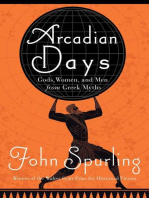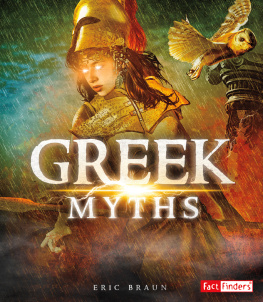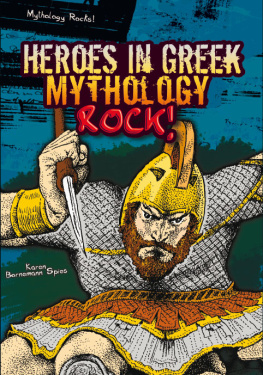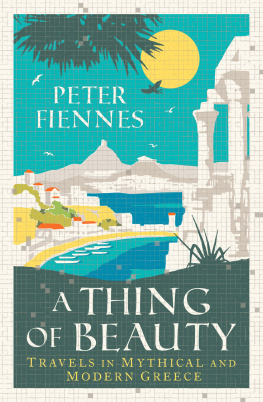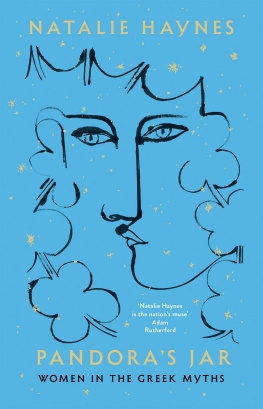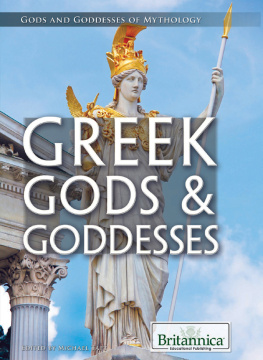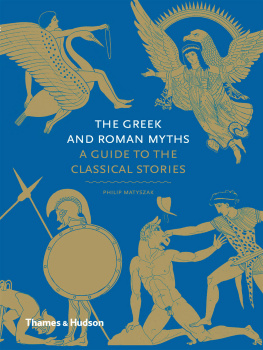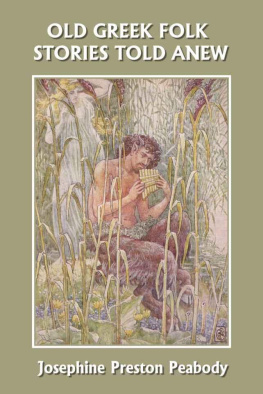John Spurling - Arcadian Days: Gods, Women, and Men from Greek Myths
Here you can read online John Spurling - Arcadian Days: Gods, Women, and Men from Greek Myths full text of the book (entire story) in english for free. Download pdf and epub, get meaning, cover and reviews about this ebook. year: 2022, genre: Art. Description of the work, (preface) as well as reviews are available. Best literature library LitArk.com created for fans of good reading and offers a wide selection of genres:
Romance novel
Science fiction
Adventure
Detective
Science
History
Home and family
Prose
Art
Politics
Computer
Non-fiction
Religion
Business
Children
Humor
Choose a favorite category and find really read worthwhile books. Enjoy immersion in the world of imagination, feel the emotions of the characters or learn something new for yourself, make an fascinating discovery.
- Book:Arcadian Days: Gods, Women, and Men from Greek Myths
- Author:
- Genre:
- Year:2022
- Rating:5 / 5
- Favourites:Add to favourites
- Your mark:
- 100
- 1
- 2
- 3
- 4
- 5
Arcadian Days: Gods, Women, and Men from Greek Myths: summary, description and annotation
We offer to read an annotation, description, summary or preface (depends on what the author of the book "Arcadian Days: Gods, Women, and Men from Greek Myths" wrote himself). If you haven't found the necessary information about the book — write in the comments, we will try to find it.
Arcadian Days: Gods, Women, and Men from Greek Myths — read online for free the complete book (whole text) full work
Below is the text of the book, divided by pages. System saving the place of the last page read, allows you to conveniently read the book "Arcadian Days: Gods, Women, and Men from Greek Myths" online for free, without having to search again every time where you left off. Put a bookmark, and you can go to the page where you finished reading at any time.
Font size:
Interval:
Bookmark:
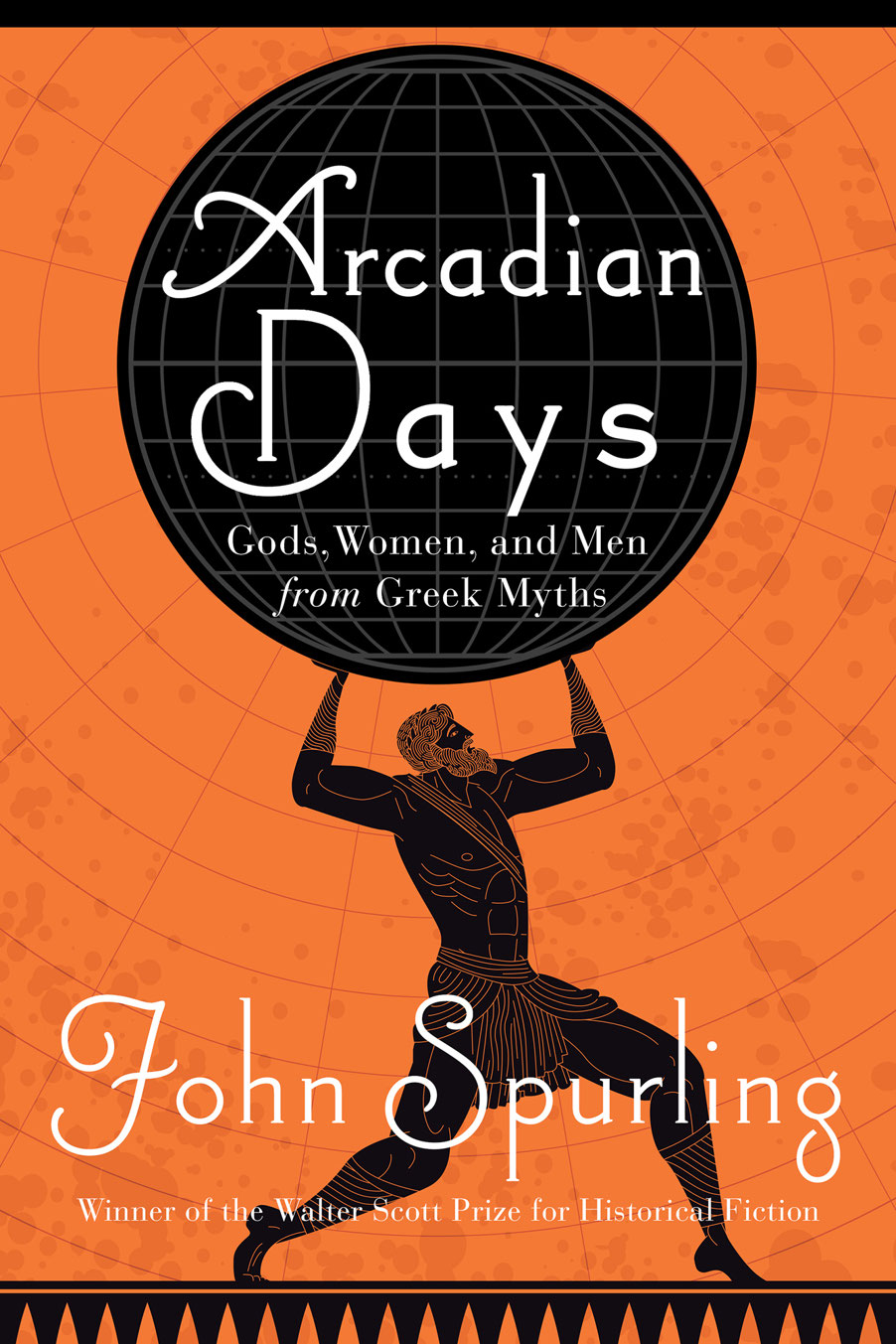
Arcadian Days
Gods, Women and Men from Greek Myths
John Spurling
Winner of the Walter Scott Prize for Historical Fiction
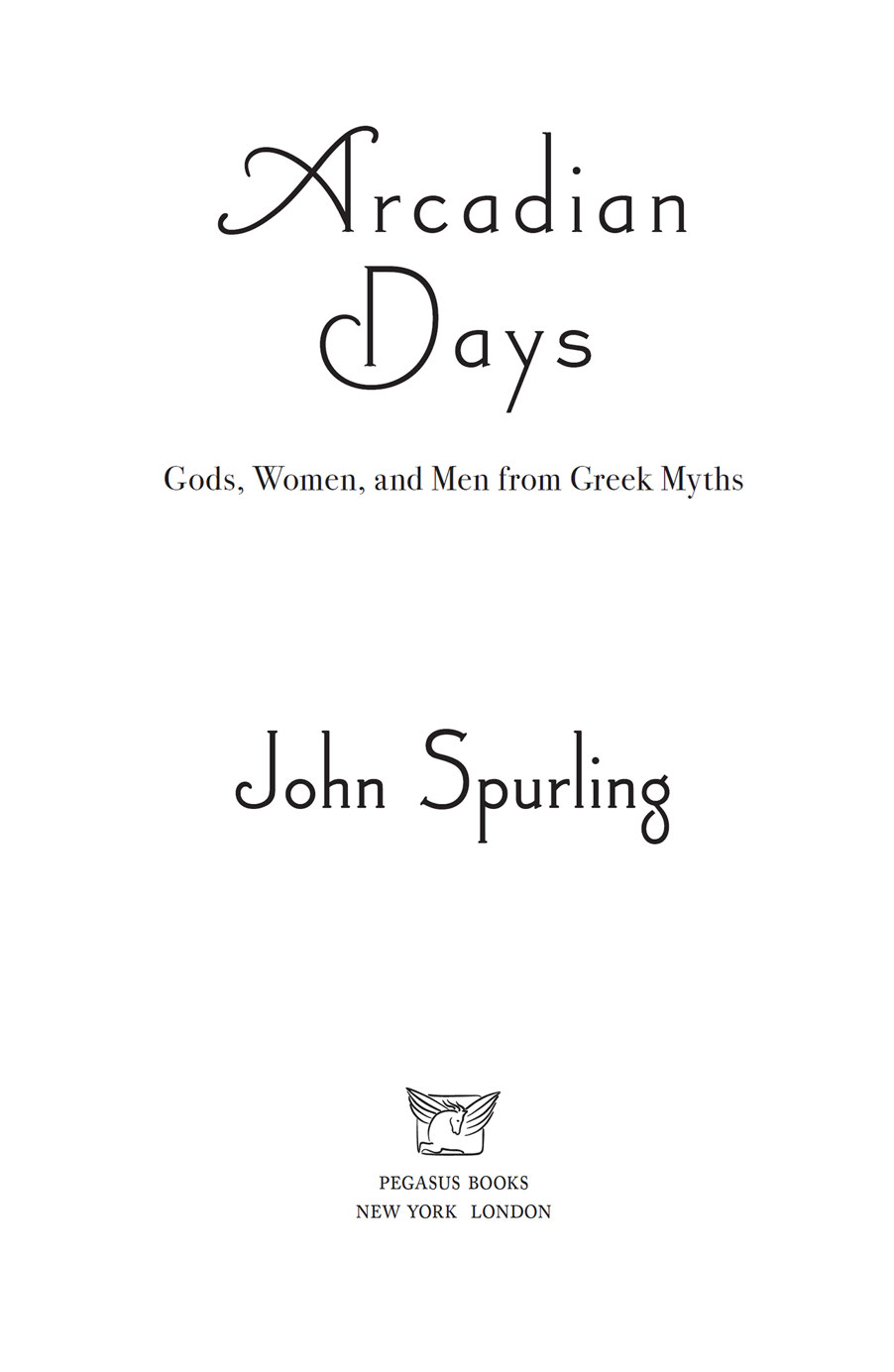
In memory of my father and mother, Antony and Elizabeth, whose odyssey together for nearly fifty years included Kenya, Trinidad, Gambia, Sierra Leone and England, bearing out Odysseus words:
, .
For nothing is nobler and better than when a man and woman of the same mind and understanding keep house together.
Homer, Odyssey VI.1824
They fashioned a tomb for you,
O holy and high one, The Cretans, always liars, evil beasts, lazy bellies.
But you are not dead you live and continue for ever,
For in you we live and move and have our being.
Epimenedes, a Cretan poet and prophet of the sixth century BCE, asserting the immortality of Zeus. Quoted by Callimachus, Alexandrian poet and librarian of the third century BCE, in his Hymn to Zeus. The line about the Cretans is quoted by St Paul in Titus 1:12.
The Greek language has no letter c or j or the diphthongs ae and oe, which come from Latin. Greek uses k i, ai and oi. For familiar names, such as Arcadia, Jocasta, Jason, Mycenae, Oedipus, I have used the Latin spelling, but for less familiar ones the Greek. Herakles is the main exception, since the Roman Hercules is a somewhat different character, a composite figure, partly the Greek hero, partly an old Italian deity.
Latin masculine names tend to end in us but Greek ones in os, since the Greek u (upsilon) is pronounced like an i and transliterates as our y. I have mostly used os, even for Cadmos, but have left very familiar names, such as Aeschylus, Caucasus and Oedipus, in their Latin form.
The word Greek itself is a Latin usage, probably derived from the tribe of the Graeci who inhabited the north-western coast of Greece and were the first Greeks encountered by the Romans. The ancient Greeks called themselves Hellenes and their country Hellas. Homer usually calls them Achaians.
The long e at the end of Greek feminine names, such as Athene, Antigone, Penelope, should always be sounded.
Myths are not too concerned with human chronology. Herakles is chosen to release Prometheus from his torment in the Caucasus, but there is no suggestion that Herakles is involved in the Flood, which seems to happen after Prometheus release and from which the only human survivors are Prometheus son Deukalion and daughter-in-law Pyrrha. The centaur Chiron, who gives up his immortality so as to die, is still around generations later to tutor Jason, Achilles and Patroclus. Oedipus, who seems to belong to a later generation which has no direct contact with the gods, is already said to be dead in the Iliad and Odyssey, whose heroes are constantly in touch with the gods.
My previous book of Greek myths, Arcadian Nights, published in 2016, was a response to the deep satisfaction of revisiting Greece after a long absence. My first visit, as a student, was in the summer of 1959, and my second, with my wife Hilary, in the summer of 1962. The outcome of this third visit, forty-four years later, in 2006, was that we bought a house in the hill village of Sapounakeka, overlooking the long curving beach of Tyros on the west side of the Gulf of Argos.
Some of the people in this village still speak a language called Tsakonika, which is perhaps now no more than a dialect of modern Greek, but whose structure is older than the Greek spoken by the Dorians, who invaded Greece round about 1000 BC. Tsakonikas survival is no doubt due to the isolation of this part of the Peloponnese, a district called Kynouria, now part of the modern province of Arcadia.
Until the magnificently scenic road snaking along the precipitous coast from the north was built in the 1960s, there was no way to visit Tyros except by sea or over the Parnon mountains. There was a dirt road twisting up to the escarpment high above our village and twisting down again to the town of Leonidio, and a road westwards out of Leonidio to the mountain town of Kosmas, but no road beyond that to Sparta and the valley of the River Eurotas. Kynouria was not on the way to or from anywhere that mattered. There was no reason for anyone to visit or invade these steep slopes, whose inhabitants were mostly fishermen possessing little more than their boats, goats, donkeys and terraced olive trees. Traces remain of a Neolithic settlement on the conical hill above Tyros harbour and of a later shrine of Apollo on top of the ridge behind that, but otherwise history ignored Kynouria.
Arcadian Nights is a retelling, with variations and insertions of my own, of five mainly Peloponnesian myths: the eponymous Pelops, his father Tantalos and his descendants, the ill-fated House of Atreus; Apollo, because of his shrine above Tyros; Herakles, who came from Argos; Perseus, also from Argos; and Theseus from Troezen, on the peninsula called the Claw, the other side of the Gulf of Argos from our house.
Arcadian Days retells five myths from other parts of Greece, in the same spirit of inquiry into some of their puzzling details, sympathy with the characters and respect for their everlasting enchantment as stories. I have relied mainly on the great poets who created their own incomparably beautiful and profound versions of these myths: Homer, Aeschylus, Sophocles and Euripides. But writing now for readers perhaps less familiar with these stories than previous generations, in a world where we almost have the powers of the Greek gods (though not yet instant travel or immortality), I have tried to give them a modern English flavour, lighter and more conversational, a little less intense in this looser prose form than the poetically charged originals, without losing their emotional force or the stern grip of their narrative. There are no better stories, nor any more intrinsic to European culture, than these myths, which have inspired poets, novelists, artists and musicians for some three millennia.
Writing Arcadian Nights was a celebration of the pleasure we took in our new Arcadian retreat, a pearl among houses, as the architect who reconstructed it and the former goat farm behind promised to make it, and did. Writing Arcadian Days has been a valediction to the house. We have grown too old to care for it properly, and since Britains departure from the European Union and the COVID-19 pandemic, which began a few months after I completed the manuscript, have not been able to visit the house at all. So we are in the process of selling it. The brevity, insecurity and short-sightedness of human life is a major theme in all these myths, but I may have emphasised it more than I would have done fifteen years ago when we moved into Villa Skales, our House of Steps, marvelling at the cerulean sea below and, up all those steps above, the huge and ancient olive tree, loaded with olives to this day, as it surely was when the Byzantines still ruled Greece and nobody, let alone the British, came to Kynouria.
London,
April 2022
PROMETHEUS AND PANDORA
1. FAT AND FIRE
Walking in the hills behind our house in Arcadia, I thought of Prometheus. It was a warm, sunny November day. The asphodels were over, dead stalks drooping over their huge bulbs, but there was pink heather with a sweet scent, colonies of wild cyclamen in all the sheltered spots and occasionally white crocuses. The crocus of the Caucasus mountains, not white but saffron, was supposed to have sprung from the blood of Prometheus as he lay shackled to a rock while an eagle savaged his liver. Saffron-coloured blood? Prometheus was an immortal, and the veins of immortals were filled not with our sort of blood, but a fluid called ichor, which might or might not be orangey-yellow. In the Iliad, Homers account of the Trojan War, both the goddess of love, Aphrodite, and the god of war, Ares, are slightly wounded and lose a little ichor, but Homer makes no mention of its colour.
Next pageFont size:
Interval:
Bookmark:
Similar books «Arcadian Days: Gods, Women, and Men from Greek Myths»
Look at similar books to Arcadian Days: Gods, Women, and Men from Greek Myths. We have selected literature similar in name and meaning in the hope of providing readers with more options to find new, interesting, not yet read works.
Discussion, reviews of the book Arcadian Days: Gods, Women, and Men from Greek Myths and just readers' own opinions. Leave your comments, write what you think about the work, its meaning or the main characters. Specify what exactly you liked and what you didn't like, and why you think so.

